
Magic 100 Words Deskmat Games
Share
Start by writing the student's name on the top of the desk mat (mat) in the space provided.
Place the mat in front of the child and ask: "Can you see your name on the mat?" "Point to your name on the mat." In learning about the way our language is written children need to be able to learn how to 'break the code'. The games played on the desk mat (mat) are explicitly designed to support children in their learning about how sounds and words are written. Learning about letters and words. "Show me where the letters are on the mat." "Show me where all the words are on the mat." "Point to the letter that is at the beginning of your name." "Point to the letter that is at the beginning of Mum." Continue with this game by asking about the initial letter of familiar people, family, friends, animals, toys, sports, hobbies etc.
Show the child the letters at the bottom of the mat. Explain that each letter has a name, just like they sound when we sing or say the alphabet - A B C D E F G.... Then explain that each letter can also make different sounds, eg 'A' can say 'a' as in apple.
Beat the Clock
Ask your child to look at the words on the mat and invite them to play the following games. You may need a clock, mobile phone or watch that has a second hand for timing some of the games. Say as many words on the mat as you can in one minute. Choose a color on the mat and say the words in that column as quickly as you can. In learning centres you can time each other and keep score to determine who is the fastest at saying the words. Practise often so that you get faster and faster. Learning to the say the words quickly is a very good way to get better at reading. The faster you are at saying the words helps you to think about the story or information in the book rather than all the little words in between. These games are based on a skill known as rapid automatic naming (RAN) which highly correlates with successful reading. Assisting children to learn to say these high frequency words at a rate of about one word per second is an excellent stategy to enhance reading. The Magic Words Playing Cards have specifically designed to assist children in learning these words and learning to recognise and say them quickly. All the RAN games can be played using the Magic Words Playing Cards.
Favourite Word
Get someone to say a word and see how long it takes to locate the word on the mat. Do this many times until you are familiar with where all the words are on the mat.
Once familiar with the words try to spell the word by typing it out on the letter buttons at the bottom of the mat. It is ok to look at the word while typing. Checking to see that you are spelling it correctly is a great way to learn how to spell new words! Recognition of a word either by pointing to the word when asked, playing Magic Words Card Games or reading the word in books is a much easier task than having to remember what a word looks like and be able to spell and write it accurately. Children need to be given ample opportunity to practise "bridging activities" like copying words, tracing words, finding words in words and tapping or typing the words, while looking at them, on the alphabet chart at the bottom of the mat. These activities are prerequisite strategies to being able to write the words correctly.
Sentence Game
Have someone make up a sentence using words on the mat. Then as you locate the words say the sentence back. Start with short simple sentences and gradually increase as confidence grows. This game is particularly good at improving short term auditory memory. Sample sentences: I like you. I will come. I will come now. I will come with you. I will come with you now. I want to come. I want to come with you. I want to come with you now. I will come to you now. I can look. I can look up. I can look down. I can look at you. I can look at you now. I could come with you now. I could go there now. I want to go out there with you. I want to go out there with you now. I want to go out there now and see them.
There are literally hundreds of sentences that you can make up!
Related Posts
-

What are the Magic Words?
Magic Words are the most common words in English and the most important words in learning to read.
-

12 Golden Words
The most important words in Learning to Read. Learning the 100 most frequent words in English is essential to every child's reading success.
-
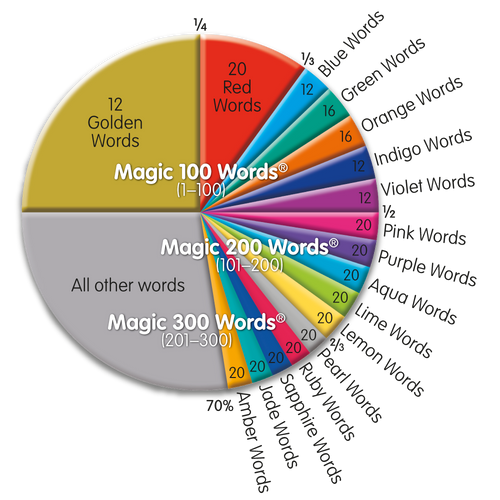
Research behind the most important words in reading
Magic Words resources are designed to support the average reading of a person in a population so that they can confidently pick up any reading material, reading scheme, daily newspaper etc. and be a competent reader.
-

Magic Words Learning Boards
The Magic Words Learning Boards match the sheets that are used in schools and sent home for learning the Magic Words, which are the most frequently used words in reading and writing.
-

Science of Reading
Learning to read is an important part of every child’s development. It helps build important, lifelong skills in areas such as language, concentration, critical thinking and memory.
-
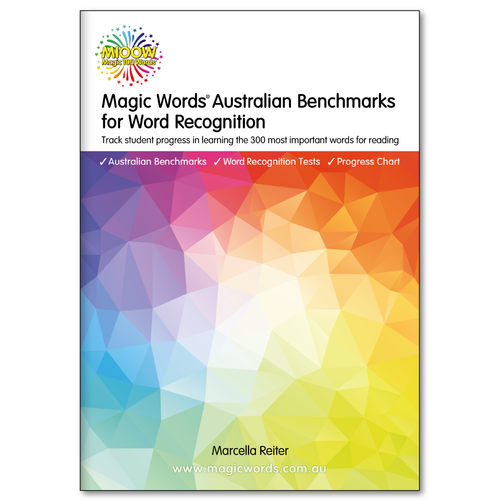
A-E Standards
Magic Words Australian Benchmarks for Word Recognition Manual allows teachers to measure a student’s:
-

Phonics
Phonics programmes start children off by learning a few letters e.g.
s, a, t, p, i, n as the first sounds.
-
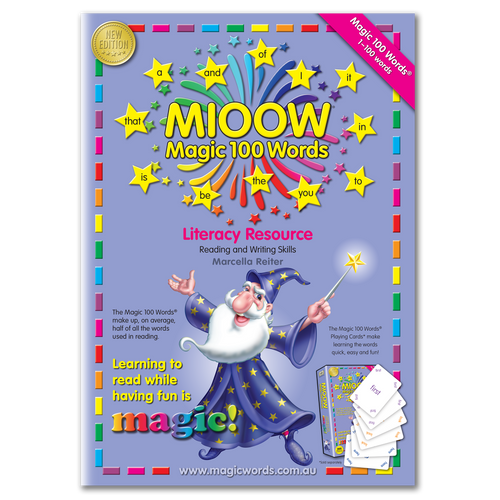
Swap original for new!
Swap an original edition (2000, 2001, 2002, 2004, 2007, 2011 or 2015) of the Magic 100 Words Literacy Resource Manual for a new revised and updated 2018 edition for a limited time at half price.
-
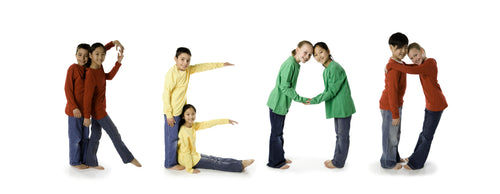
Play Jumble Words
Jumble Words - select one of the Magic Words Playing Cards
-

Magic Words Extension Pack
-
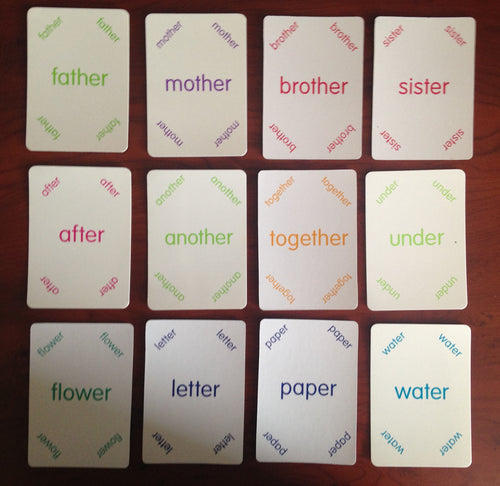
Spelling the sound -er with Magic Words
You can use the Magic Words Playing Cards to learn the spelling sound /er/: ur, ir, ear, or er.
-

Premium Home Pack - Magic 100 and 200 Words
-

Magic Words Certificates
-
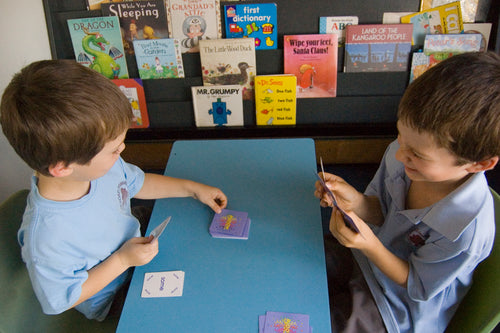
Double letters with Magic Words
Use your Magic Words Playing Cards to teach double letters.
-
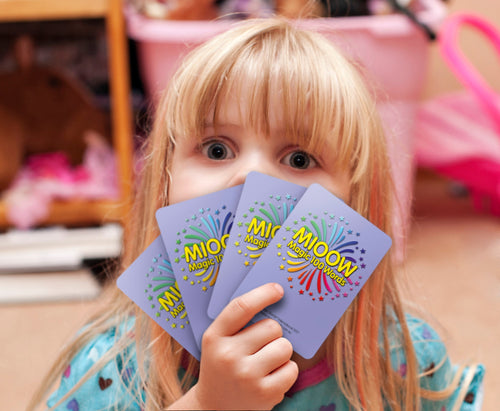
Spelling with Magic Words
Top strategies and activities for learning how to spell sight words.
-

Magic Words Australian Benchmarks
MIOOW® Magic Words® Recognition Tests are individually administered and are designed to record each student’s knowledge of the most frequently used words.
-

How reading to your child improves development
In this article, the team at Magic Words explores how reading to your child not only improves their development, but also can be fun & engaging.
-

Professional Learning
Magic Words is used in schools all around the world and in over 80% of Australian Primary Schools.
-

Magic 200 Words
Magic 200 Words Literacy Resource Manual - 2017 Third edition now available.
-

Learning to read with Magic Words
Magic Words are the most important words for every child to learn.
-

Magic Words in the “Science of Reading”
Magic Words advocates and promotes targeted, explicit, and systematic teaching of the core principles of learning to read.
-

Play Based, Hands-On Learning
Learning to read and spell with play-based, hands-on activities and materials for literacy success.
-

Foundation Home and School - Magic 100 Words
Foundation/Prep/Kindy Home Pack is ideal for Foundation, Prep, Kindergarten (NSW), Reception (SA) and Pre Primary (WA).
-
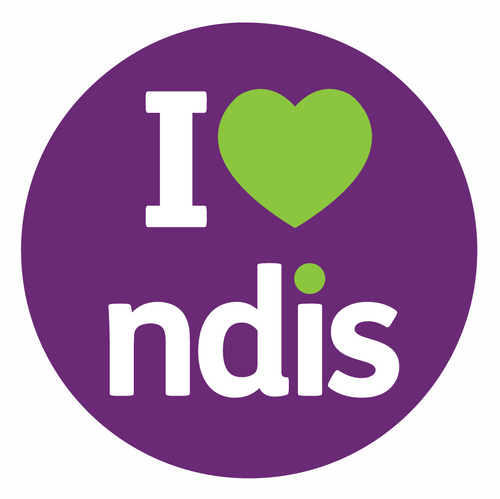
NDIS Registered
Magic Words International is an approved provider for the NDIS.
-
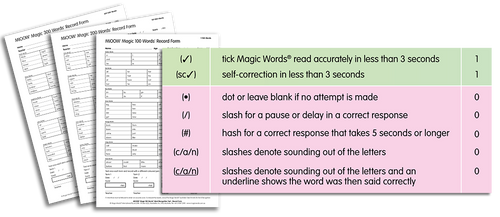
"Taught v Caught" - Back to School Testing
Magic Words Recognition Tests are a quick and easy way to check each student’s progress,
-

Magic Words Learning Board Games
Learn how to read and write with the Learning Boards and Playing Cards.
-
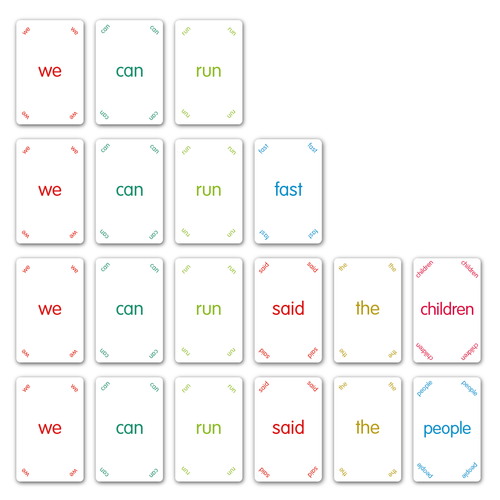
Magic Words Card Games
For top results match the Playing Cards to the book your child is reading.
-

Teaching Magic Words
Students who learn the Magic Words rapidly improve reading, fluency and comprehension.
-
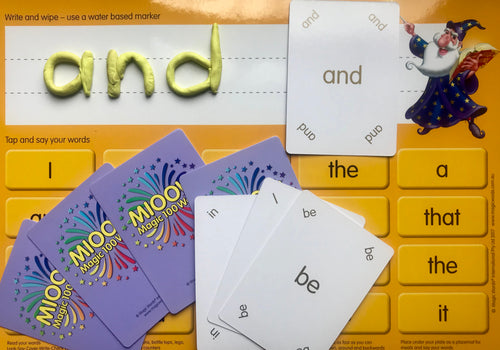
Spelling Magic Words
Use a water based marker on the front of the Magic Words Learning Board to practice tracing the Magic Words in the level the child is learning.
-
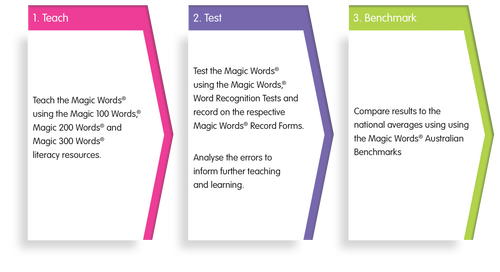
Magic Words Assessment and Benchmarks
Magic Words Australian Benchmarks measures progress in literacy proficiency for assessment, tracking and monitoring, and reporting
-

Classroom Teacher Optimum Pack with Benchmarks
Optimum Classroom Teacher Pack includes ALL Magic 100, 200, and 300 Words Literacy Resource Manuals, Playing Cards, Learning Boards, Test Kit and Australian Benchmarks.
-

The benefits of developing reading skills during childhood
Promote a love of reading and start developing better reading skills in your children with our quality word packs and fun games available at Magic Words.
-

Spelling tricky words with Magic Words
Use the back of the Magic Words Learning Board to practice spelling the Magic Words in the level the child is learning.
-

Optimum Pack - Magic 100, 200, and 300 Words
The Optimum Home Pack includes ALL Playing Cards and Learning Boards for learning all the Magic Words.
-

Assessment and Reporting
MIOOW® Magic Words® Recognition Tests are individually administered and are designed to record each student’s knowledge of the most frequently used words.
-
Easy Magic Words
There are over 20 two letter Magic Words!
-

Magic 100 Words
Magic Words are the most common words in English and are the most important words in learning to read and write.
-

M100W - Magic Words Literacy Workshops
Schools using the Magic Words as a key strategy of their literacy program, achieve outstanding success.
-
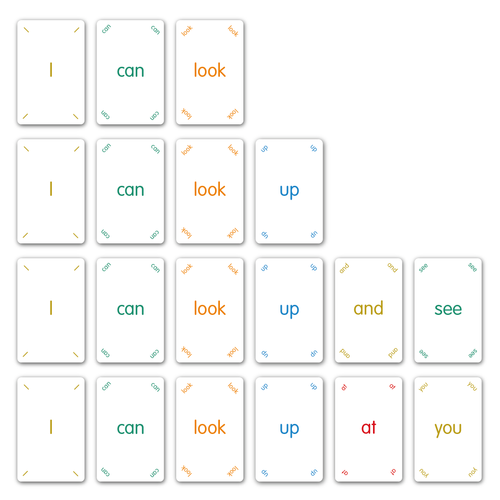
Sentence Game
This game is particularly good at improving short term auditory memory
-
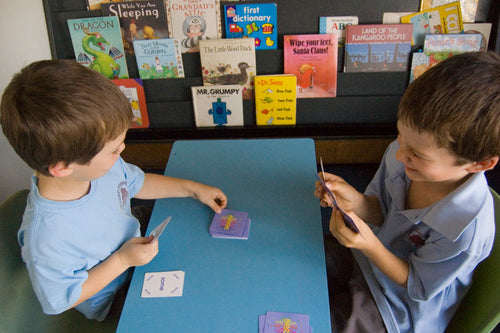
Beat the Clock - Fluency Games
Learning to the say the Magic Words quickly is an excellent way to get better at reading and recognising the words.
-
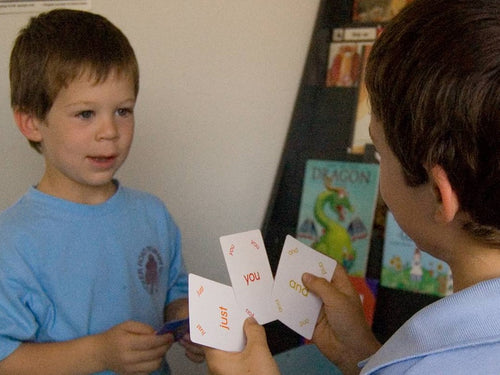
Wish
"I Wish, I Wish" has shown to be one of the most popular Magic Words games both in school and at home.
-
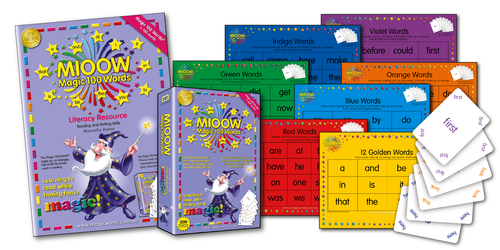
Copyright
The M100W - Magic Words materials are copyright and trademark protected. All rights reserved.
-
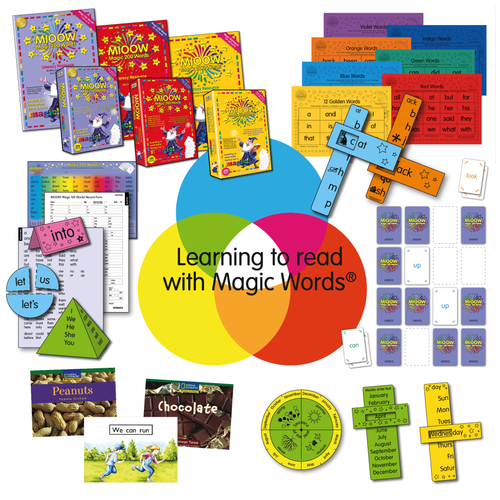
Magic Words
The Magic Words are the most frequently occurring words in all books, readers, magazines and newspapers.
-
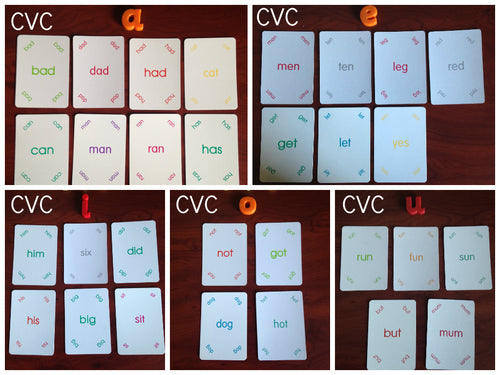
Magic Words and CVC
CVC words are words that follow the letter pattern, consonant-vowel-consonant.
-
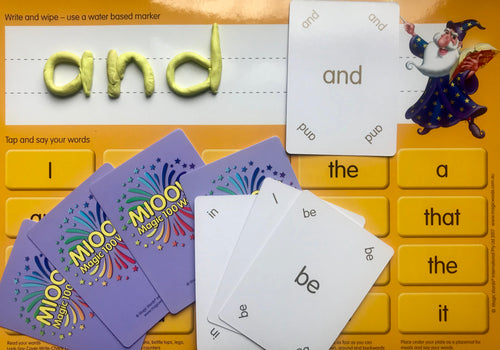
How to start
Locate the Magic Words from your child's book or the Magic Words Learning Board; then select the matching words, from the set of Magic Words Playing Cards.
-
Writing the Magic Words
The Magic Words Playing Cards and Learning Boards are printed in the reading font most commonly used in children’s readers/books.
-
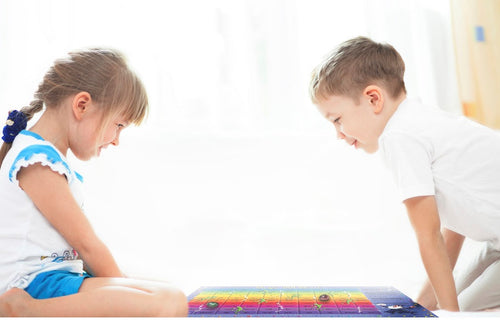
Magic 100 Words and Numbers Board Games
The aim of the game is to be the first player to reach the “your” square (words side) or the “100” square (numbers side).
-

Background - Magic 100 Words
Magic 100 Words are the most common words in English and make up half (50%) of all the words used in learning to read and write.
-
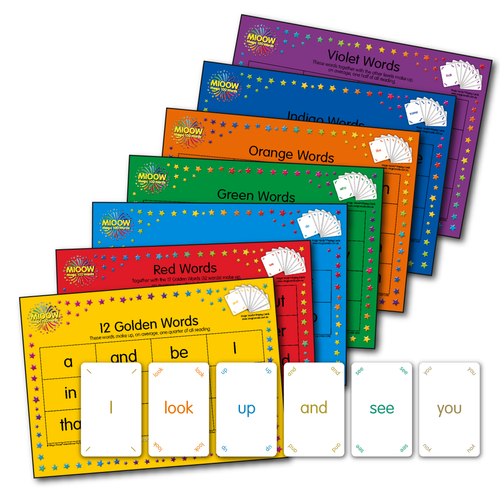
Fast Words
Ask your child to look at the words on the back of the Magic Words Learning Board and invite them to play the following games.















































